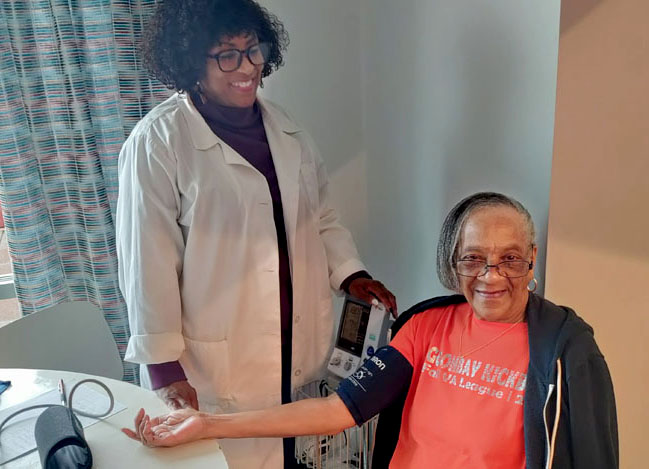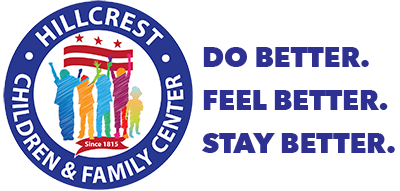We provide premier behavioral and mental care services for Adults in a family structure or as individuals. Please explore the following programs to determine which would best meet your needs. Once you make your selection, we look forward to your appointment.


Adult Community Support (CST)
Need help achieving stability and independence? The CST services is designed for assist adults through case management, counseling, and coordination complimented with social and health resources.

Therapy
Individualized therapeutic sessions aimed at addressing various mental health issues and fostering emotional well-being through evidence-based approaches. Various groups available.
Assertive Community Treatment (ACT)
It takes a village to raise a family. Our village approach provides an intensive, team-based program that consists of comprehensive mental health support to individuals with severe mental illness. ACT services are designed to promote stability and independence through community integration.
Read More...

Assertive Community Treatment (ACT) Team 2 is a multidisciplinary group dedicated to delivering intensive, person-centered mental health services to individuals living with serious and persistent mental illness. Operating under a recovery-based model, ACT Team 2 provides community-based psychiatric care, therapy, medication management, housing support, and case management to help clients achieve stability and independence. This exceptional team ensures that clients receive services where they are—whether in their homes, shelters, or community settings—offering support that is flexible, consistent, and responsive to individual needs. Led by a Clinical Manager and a Team Lead along with seven staff members, each member brings a unique strength to the team, contributing compassion, expertise, and cultural responsiveness to every interaction. ACT Team 2 continues to be a vital pillar of Hillcrest’s behavioral health services, bringing hope, healing, and high-impact care to those who need it most.
Psychiatric, Nursing, and Medication Management Services
We take pride in delivering a stellar system of clinical services such as mental health assessments, diagnosis, and ongoing management of health and medications. Providing comprehensive support to meet clients’ behavioral health needs is our specialty.
Health, Wellness, and Recovery (Substance Use Program for Adults)
Comprehensive counseling and support programs are provided designed to address substance use, promoting recovery, and helping individuals develop healthier coping strategies.

PCP Referrals
We offer referrals to primary care providers for general health assessments and follow-ups to ensure clients receive comprehensive care alongside mental health services. Health professionals provide guidance and serve as a continuous resource.
Frequently Asked Questions (FAQs)
What is a Diagnostic/Assessment?
A Diagnostic/Assessment is an intensive clinical and functional evaluation of a Consumer’s mental health condition that results in the issuance of a Diagnostic Assessment Report with recommendation for service delivery that provides the basis for the development of an Individualized Recovery Plan (“IRP”) for adults or an Individualized Plan of Care (“IPC”) for children and youth. A Diagnostic/Assessment shall determine whether the Consumer is appropriate for and can benefit from MHRS, based upon the Consumer’s diagnosis, presenting problems and recovery goals. The Diagnostic/Assessment shall also evaluate the Consumer’s level of readiness and motivation to engage in treatment.
What is Medication/Somatic Treatment?
Medication/Somatic Treatment services are medical interventions including: physical examinations; prescription, supervision or administration of mental health-related medications; monitoring and interpreting results of laboratory diagnostic procedures related to mental health-related medications; and medical interventions needed for effective mental health treatment provided as either an individual or group intervention. Medication/Somatic Treatment services include monitoring the side effects and interactions of medications and the adverse reactions a Consumer may experience, and providing education and direction for symptom and medication self-management.
Group Medication/Somatic Treatment shall be therapeutic, educational an interactive with a strong emphasis on group member selection, facilitated therapeutic peer interaction and support.
What is Counseling?
Counseling services are individual, group or family face-to-face services for symptom and behavior management; development, restoration or enhancement of adaptive behaviors and skills; and enhancement or maintenance of daily living skills. Adaptive behaviors and skills and daily living skills include those skills necessary to access community resources and support systems, interpersonal skills and restoration or enhancement of the family unit and/or support of the family. Mental health support and consultation services provided to Consumers’ families are reimbursable only when such services and supports are directed exclusively to the well-being and benefit of the Consumer.
What is Community Support?
Community Support services are rehabilitation supports considered essential to assist the Consumer in achieving rehabilitation and recovery goals. Community Support services focus on building and maintaining a therapeutic relationship with the Consumer. Community Support activities include:
- Participation in the development and implementation of a Consumer’s IRP/IPC and Community Support Individualized Service Specific Plan (“ISSP”);
- Assistance and support for the Consumer in stressor situations;
- Mental health education, support and consultation to Consumers’ families and/or their support system, which is directed exclusively to the well-being and benefit of the Consumer;
- Individual mental health service and support intervention for the development of interpersonal and community coping skills, including adapting to home, school and work environments;
- Assisting the Consumer in symptom self-monitoring and self-management for the identification and minimization of the negative effects of psychiatric symptoms which interfere with the Consumer’s daily living, financial management, personal development or school or work performance;
- Assistance to the Consumer in increasing social support skills and networks that ameliorate life stresses resulting from the Consumer’s mental illness or emotional disturbance and are necessary to enable and maintain the Consumer’s independent living;
- Developing strategies and supportive mental health interventions for avoiding out-of-home placement for adults, children and youth and building stronger family support skills and knowledge of the adult, child or youth’s strengths and limitations; and
- Developing mental health relapse prevention strategies and plans.
What is a Crisis/ Emergency?
Crisis/Emergency is a face-to-face or telephone immediate response to an emergency situation involving a Consumer with mental illness or emotional disturbance that is available twenty-four (24) hours per day, seven (7) days per week. Crisis/Emergency services are provided to Consumers involved in an active mental health crisis and consist of immediate response to evaluate and screen the presenting situation, assist in immediate crisis stabilization and resolution and ensure the Consumer’s access to care at the appropriate level. Crisis/Emergency services may be delivered in natural settings and the Crisis/Emergency provider shall adjust its staffing to meet the requirements for immediate response. Each Crisis/Emergency provider shall obtain consultation, locate other services and resources, and provide written and oral information to assist the Consumer in obtaining follow-up services. Each Crisis/Emergency provider shall also be a DMH-certified provider of Diagnostic/Assessment or have an agreement with a Core Services Agency or a Core Services Agency’s affiliated Sub provider to assure the provision of necessary hospital pre-admission screening.
What Is Community-Based Intervention?
Community-Based Intervention services are time-limited intensive mental health intervention services delivered to children, youth and adults and intended to prevent the utilization of an out-of-home therapeutic resource by the Consumer (i.e., psychiatric hospital or residential treatment facility).
Community-Based Intervention is primarily focused on the development of Consumer skills and is delivered in the family setting in order for the Consumer to function in a family environment. These services are available twenty-four hours a day, seven days a week.
The basic goals of Community-Based Intervention services are to:
- Diffuse the current situation to reduce the likelihood of a recurrence, which if not addressed could result in the use of more intensive therapeutic interventions;
- Coordinate access to covered mental health services;
- Provide mental health service and support interventions for Consumers that develop and improve the ability of parents, legal guardians or significant others to care for the person with mental illness or emotional disturbance.
Community-Based Intervention services shall be multi-faceted in nature and include situation management, environmental assessment, interventions to improve Consumer and family interaction, skills training, self and family management, and coordination and linkage with covered mental health rehabilitation services and supports and other covered Medicaid services in order to prevent the utilization of more restrictive residential treatment.
Community-Based Intervention services shall be delivered primarily in natural settings and shall include in-home services. In-home services - regarding medications and behavior management skills; dealing with the responses of the Consumer, other caregivers and family members; and coordinating with other mental health rehabilitation treatment providers - include support and consultation to the Consumer’s families and/or their support system, which is directed exclusively to the well-being and benefit of the Consumer.
What Is Assertive Community Treatment (ACT)?
Assertive Community Treatment (ACT) is an intensive, community based mobile clinical service for adults with serious and persistent mental illness who have histories of non compliance with traditional outpatient services.
ACT services are provided to Consumers in accordance with the IRP/IPC with dedicated staff time and specific staff to Consumer ratios. Service coverage by the ACT Team is required twenty-four (24) hours per day, seven (7) days per week. The Consumer’s ACT Team shall complete a comprehensive or supplemental assessment and develop a self care-oriented Individualized Service Specific Plan (ISSP) (if a current and effective one does not already exist).
Services offered by the ACT team shall include:
- Mental health-related medication prescription, administration and monitoring;
- Crisis assessment and intervention;
- Symptom assessment, management and individual supportive therapy;
- Substance abuse treatment for Consumers with a co-occurring addictive disorder;
- Psychosocial rehabilitation and skill development;
- Interpersonal social and interpersonal skill training; and
- Education, support and consultation to Consumers’ families and/or their support system, which is directed exclusively to the well-being and benefit of the Consumer.
Assertive Community Treatment shall include a comprehensive and integrated set of medical and psychosocial services for the treatment of the Consumer’s mental health condition that is provided in non-office settings by the Consumer’s ACT Team. The ACT Team provides community support services that are interwoven with treatment and rehabilitative services and regularly scheduled team meetings.
Telehealth for all service
- Clients with phones and computers will receive their services via videoconferencing and telephone
- If needed, alternative arrangements will be made for clients without telephone access
Our Values
Treatment is a partnership between the client, staff, and a network of family and friends; strength is found through that community.
Fostering healing in a safe, trusted environment is critical for the well-being of those we serve.
Individuals’ efforts in seeking help reflect a foundational strength for recovery and growth.
